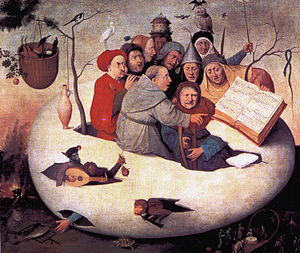Starrleen Simmons has shiny bright eyes behind thick glasses, and a snappy haircut that she insists is a mess. Her voice punctuates the air with enthusiasm, laughter and protest. She was born with cerebral palsy, and got through high school in spite of her learning disabilities. I met her in 2012, when she volunteered to “play with the kids” at Space No. 1. One or two days a week during the spring of 2012, she greeted families, played, cleaned up, closed up. She was one of our most valuable workers.
One day, my daughter Miranda and I were talking with her about dreams, and Starrleen said that her dream was to have a baby. Walking is difficult for Starrleen, as are picking up toys from the floor, and taking off a coat and putting it on a hanger. I wondered how she would manage the immensely physical parts of parenthood. Her biggest challenge, however, was what half the women in New York seemed to face: finding a man. Nothing is impossible these days, but still, it is hard to make a baby without one. Maybe even beyond Starrleen.
Time passed. Schedules changed. Extreme Kids grew. We didn’t see Starrleen so much. Then in the summer of 2013, I noticed a post on FB. Starrleen was pregnant. In the fall, there were pictures from the hospital. There was Starrleen, in the arms of a handsome bearded man, holding a baby to her breast.
Miranda asked me: what’s Starrleen going to do now she’s gotten her dream?
I drove over to Williamsburg to find out. Starrleen lives in a first-floor apartment in a 1970’s behemoth by the J/M tracks and a sprawling Food Bazaar Supermarket. The apartment had been big enough when it was just for her. Now there is Maurice (36), Kasuan (10 months), and a full load of baby gear. A recent flood in the building led to the displacement of much of the contents of the apartment, further adding to the clutter. But there is room on the couch to settle down and hold a chubby, curly haired boy on your lap and admire his big, wide smile. There is that familiar, tired, homey haze of new parenthood, of interrupted sleep, and of life revolving around the diapering, napping and feeding of a child who stops your heart when you look at him a certain way.
I asked Maurice if he ever thought he’d be a father, and he shook his head. He didn’t know if he could do it. Turns out he can. Much of our conversation revolved around how impossible it is to keep babies in their cribs at night, for they are so insistent on snuggling up with their parents. Because both Starrleen and Maurice have disabilities, home health aides come to help during the day. But Starrleen and Maurice are always in charge. I liked Georgia, the woman who was working there the day that I visited. When she went out on break, Starrleen informed me that not all of the health aides were as good. “Some of them want to raise the baby themselves. I have to tell them, ‘he’s my baby. I’m the mother.’” Her exasperation reminded me of professional mothers I’ve met, struggling with the dynamics of raising a child with the help of a babysitter or nanny. It’s a complicated situation. Then again what about parenthood isn't complicated?
How would you define disability?
Disability is sometimes a struggle, but you work through it.
What drives you nuts about disability?
The most frustrating thing about being a disabled parent is the looks I get when I’m walking with my son or pushing him. They’re like, “why is this disabled woman pushing a stroller?” They come asking, “are you babysitting?” No, it’s my kid. It’s his kid. We’re both disabled. When I was pregnant, people stared at me like, “oh my god, who let her get pregnant?” Somebody actually said that. I’m a grown woman. I’m 32. I'm allowed to get pregnant!
Recent Wonder
Kasuan walking, standing up, and trying to balance.
Current Project
Keeping him alive and one day having another one, saving enough to have another one, because, Lord Jesus, people say “oh, it’s going to cost money,” and you’re like, I got it, then you realize you only got 700 a month and you go, huh?


